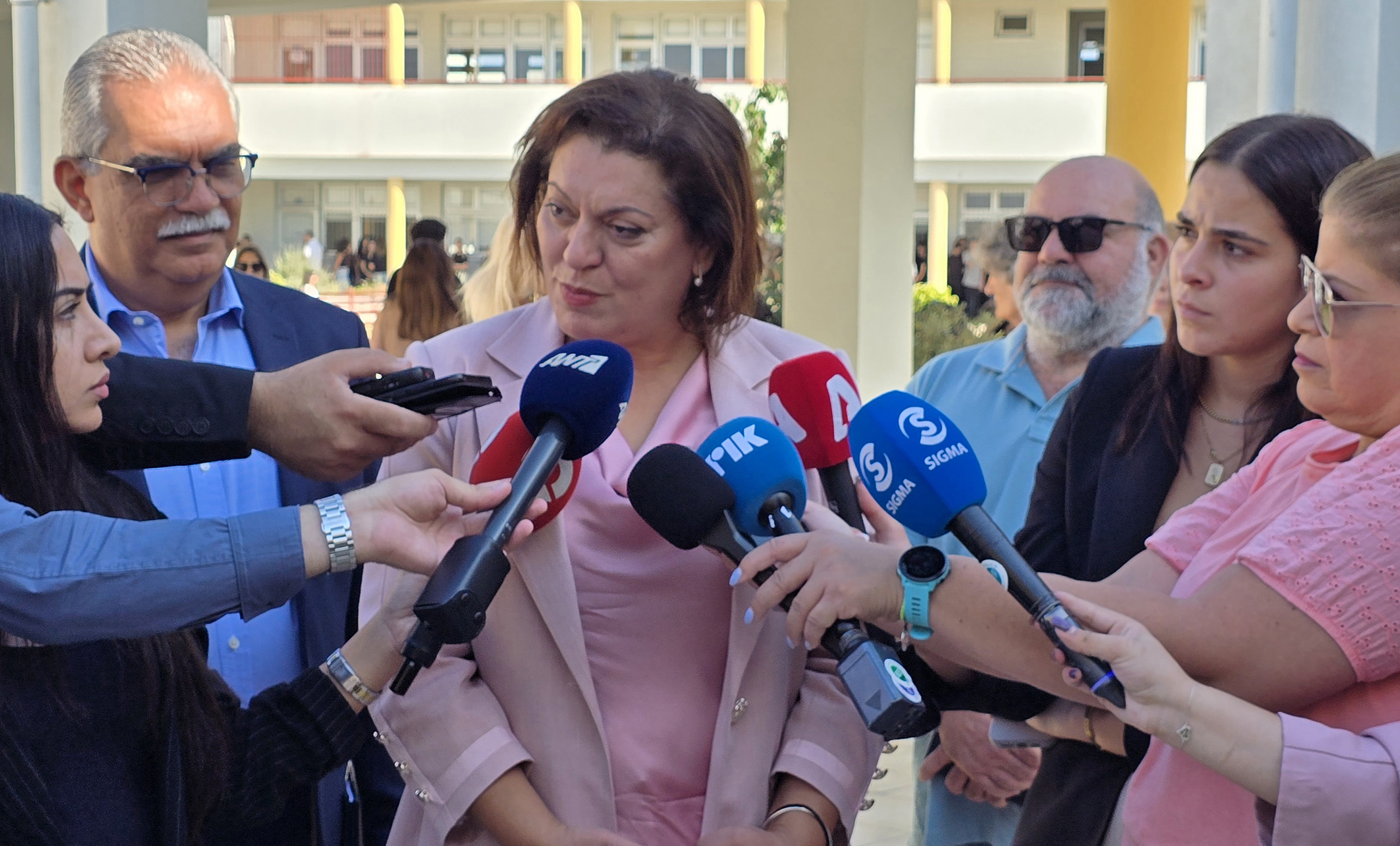Friday marked the start of the 2025-2026 school year for senior school students in Cyprus, and the education ministry pledged the education system would undergo significant changes.
The reforms are decisive, Education Minister Athena Michaelidou said.
Visiting Latsia lyceum in Nicosia, Michaelidou welcomed pupils, toured classrooms and spoke with students, urging them to treat school and university not only as places of learning but also as spaces for creativity, collaboration and values.
“This year is one of changes for our education system, with new programmes and innovations. We are emphasising the human-centred nature of education, with reforms that place our children and teachers at the core,” she said.
The minister outlined a series of changes including a reduced syllabus, greater focus on essential skills, and the introduction of subjects such as financial literacy, civic education, robotics and artificial intelligence.
Reforms will also support full-day schools, modernise infrastructure, expand digital technologies and create greener schoolyards.
“Education is an investment. As a government we invest in education, we have made it one of our top priorities, and we want to see immediate results,” she told reporters.

She also highlighted the new “technical gymnasium” programme in Nicosia and Limassol, which will familiarise younger pupils with technical skills and connect schools with the labour market – a pilot she described as pioneering by European standards.
The new headmistress of Latsia lyceum, Mary Kyprianou, also welcomed pupils.
“The new school year 2025-2026 begins with vision, planning and hope. We aspire with our teachers to build a human, democratic, inclusive school that embraces every child, respects diversity, and cultivates values of justice, solidarity and equality. I wish for a year full of health, light and progress,” she said.
Students too shared their expectations for the year.
Final-year pupil Eleni Papachristoforou described it as “the start of a difficult year, full of pressure and study,” but welcomed air conditioning in classrooms while calling for a lighter syllabus and better communication.
Her classmate Panayiotis Charalambides said he was eager to return in this “decisive year” before university and the army, praising the new facilities but suggesting lessons begin an hour later.
Another student, Elia Charalambous, said she was optimistic, describing the year as “our chance to achieve our goals,” and encouraged greater use of technology in teaching.
Addressing pupils in the schoolyard, Michaelidou assured them the ministry would stand by their side.
“The school must be a place of creation, a place of joy as well as learning. We want you to be happy coming to school,” she said, stressing that reforms would also involve modern evaluation methods designed to strengthen the system as a whole.
Concluding her message, Michaeilidou highlighted that the success of the education reforms depends on collective participation.






Click here to change your cookie preferences